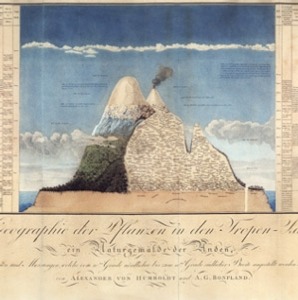Le pauvre Sokal. That was how Jacques Derrida described the American physicist responsible for the spoof paper which did so much to tarnish the reputation of French philosophy, 'Transgressing the Boundaries: Towards a Transformative Hermeneutics of Quantum Gravity'. We might pity Sokal for having to read so much of the dross required to pull off the spoof and write the book which followed it, Intellectual Impostures. But Derrida's pity was presumably for the supposed poverty of intellect and imagination Sokal's work displayed. He just didn't get it.
But can you blame him? Reading Régis Debray's God: An Itinerary certainly left me all at sea. For instance, Debray poses the question: "How are we to explain the fact that the creator lagged so far behind his creation?" In other words, why do we find no mention or trace of God until relatively late in the history of the universe? In other words, he has taken a question with an obvious answer, dressed it up as a paradox, and taken it as the starting point for another clever sounding but utterly misguided set of loosely connected musings.
It is of course a tired old objection that French philosophers are unnecessarily obscurantist, but Debray seems determined to give the critics more ammunition. Take this typical sentence not by any means the worst example about both the sand and the desert: "Rejected by the builders of churches and temples, since the political transformation of faith is exercised in and through the city: after the prophets, the kings." It does actually make sense, eventually and in the context of the whole book. But if this isn't an unnecessarily opaque sentence then I don't know what is.
Then there is what Sokal called the 'sloppy relativism'. "The logical principle of noncontradiction is of minimal use to the extent that there exist not several truths, but several 'realities' (Virtual reality being only the most recent, which does not annul the preceding cases, but gives an additional reality). The reality of belief has its own realism "
The defence of this thesis is wafer thin. Debray seems to argue by way of example (nothing in his oblique prose can ever be said to do more than seem) that there is no objective way to distinguish between true or false accounts of Jesus's life, since all the stories we have been bequeathed are already interpretations. But it is a non sequitur to say that therefore there are no rational grounds for believing some accounts to be mostly false and others more or less true. It is the classic slide from fallibility to total scepticism.
However, the relativism or more precisely the lack of interest in the truth which pervades the book is not so much not defended as stated, as though it can be assumed that any sensible person would agree, American physicists notwithstanding.
So what the hell is going on? To 'get' this book, you need to read and think in a very peculiar way. First, do not bother yourself with oldfashioned concerns about what is true and so on.
Debray treats God as a character who has appeared in human history, whose itinerary should be examined without any need to decide whether he is fictional or not. Go with this. Not to do so betrays a simplicity of mind a mature reader should overcome.
Second, learn a certain ironic detachment. Clever is never too serious. So, for example, do not ask yourself if sentences like this are intended as jokes: "The God of the desert resists monsoons quite well and Indonesia, the world's leading Muslim country, beats all records for rainfall." Rather, accept that clever is amusing, wisdom comedic.
Which leads to the third point: do not distinguish between the clever and the wise. Ideas are to be played with, more as aesthetic objects than as anything else. When Debray says something like "ought we not to reverse that proposition?" do not take the question seriously: merely marvel at how he takes an idea and inverts it to create, like an artist, a new, more interesting one.
Fourth, remember that the limits of our language are the limits of our world. We must therefore fight against these limits and not respect linguistic conventions like grammaticality.
You may be disappointed to read such a straightforward sentence as "The resurrection is life emerging from death." But your reward is to follow: "Entropy vanquished. The slope in reverse. A promise that empowering, that encouraging, biologically irresistible, discourages material proofs and counterproofs."
I tried to follow my own advice. But halfway along Debray's itinerary I had to stop for a stiff drink, and just couldn't carry on the journey. Le pauvre Baggini.
God: an itinerary is available from Amazon (UK)

